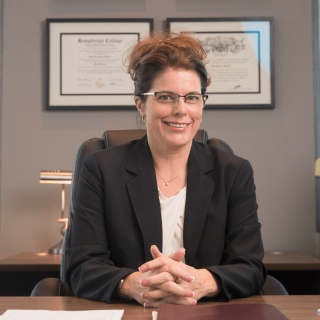Free Consultation: (209) 554-6446Tap to Call This Lawyer

Rebecka Monez
Working to make a difference in your life!
Badges
Claimed Lawyer ProfileQ&AResponsive Law
Biography
I come to work everyday so that I can make a difference in someone's life. My passion is helping others. I provide criminal defense representation for state and federal crimes. Outside of my law practice, I operate two non-profits that serve the homeless community, those additcted to drugs and alcohol and the battered women of our community.
Practice Areas
- Criminal Law
- Criminal Appeals, Drug Crimes, Expungement, Fraud, Gun Crimes, Internet Crimes, Sex Crimes, Theft, Violent Crimes
- DUI & DWI
- Domestic Violence
- Domestic Violence Criminal Defense
Additional Practice Area
- Federal Crimes
Fees
-
Free Consultation
Free Criminal Consultation
Jurisdictions Admitted to Practice
- California
- State Bar of California
-

- Federal Circuit
-

Languages
- English: Spoken, Written
- Spanish: Spoken, Written
Professional Experience
- Criminal Defense Attorney
- Law Office of Rebecka A Monez, APLC
- - Current
- Criminal Defense Attorney
- Perry & Associates, Attorneys At Law
- -
Education
- California State University - Stanislaus
- B.A. | Criminal Justice
- Honors: Dean's Honor Roll
-

- Laurence Drivon School of Law
- J.D. (2015) | Law
-

Awards
- Litigator of the Year
- American Institute of Trial Lawyers
- Elite Lawyer in Criminal Defense
- Elite Lawyer
- Lawyer of Distinction
- Lawyers of Distinction
- Peer Reviewed 4.9/5.0
- Martindale Hubbell
Professional Associations
- California DUI Lawyers Association
- Member
- Current
-

- California Public Defenders Association
- Member
- Current
-

- Stanislaus County Bar Association
- Member
- Current
-

- State Bar of California
- Member
- Current
-

- California Attorneys for Criminal Justice
- Member
- Current
-

Publications
Articles & Publications
- Know Your Legal Rights
- Rebecka A. Monez
Certifications
- Forensic Toxicology for Attorneys
- Toxicology Laboratories, Inc.
Videos
Legal Answers
5 Questions Answered
- Q. Is the date a divorce is filed or the date the divorce is finalized the date that a marriage is considered terminated
- A: A divorce in California is final upon the entry of judgment or as you stated - finalized. There are three dates that are necessary to a divorce. The first one is the date of marriage. This one is the easiest to determine and can be found on your marriage license. The second date is the date of separation. That is the day that you and your spouse "separate", or one of you moves out of the marital residence. The "finalized" date is the third date. This date will be on your final divorce judgment papers from the court who issues it. Folks sometimes confuse the date of separation to be a "finalized" date because just about every family attorney will advise parties ... Read More
- Q. What is the correct procedure for answering questions for a crime alleged against me? Should I consult an attorney
- A: It is always best practice to have an an attorney with you when questioned by law enforcement or the district attorney's investigators, because an attorney is your best protection - next to the truth. Investigators who question people are usually highly skilled individuals and they can turn a simple answer into something that can be used against you later. Having an attorney there can prevent this from happening. Investigators and police officers are also very good at making you feel comfortable so you can just "have a quick little chat", and then turn around and use it all against you in a case after charges are filed. Best advice for you is to find a local criminal defense ... Read More
- Q. Divorce in California but married in another state
- A: You do not need your marriage certificate to be notarized to file for divorce in California. Your marriage certificate from Massachusetts can stand on its own authentication by being certified from the clerk recorder's office of the county in Massachusetts that issued it. Additionally, a copy of your marriage license is not required in order to file for divorce. You must reside in the county of which you file for a term of 3 months, and must be a resident of California for a total of 6 months. Those are the jurisdictional requirements to file here. The only reason you would need your marriage license is if your spouse claimed that you were never legally married. Best of luck to y ... Read More
Social Media
Contact & Map
 Rebecka A. Monez Named an Elite Lawyer
Rebecka A. Monez Named an Elite Lawyer